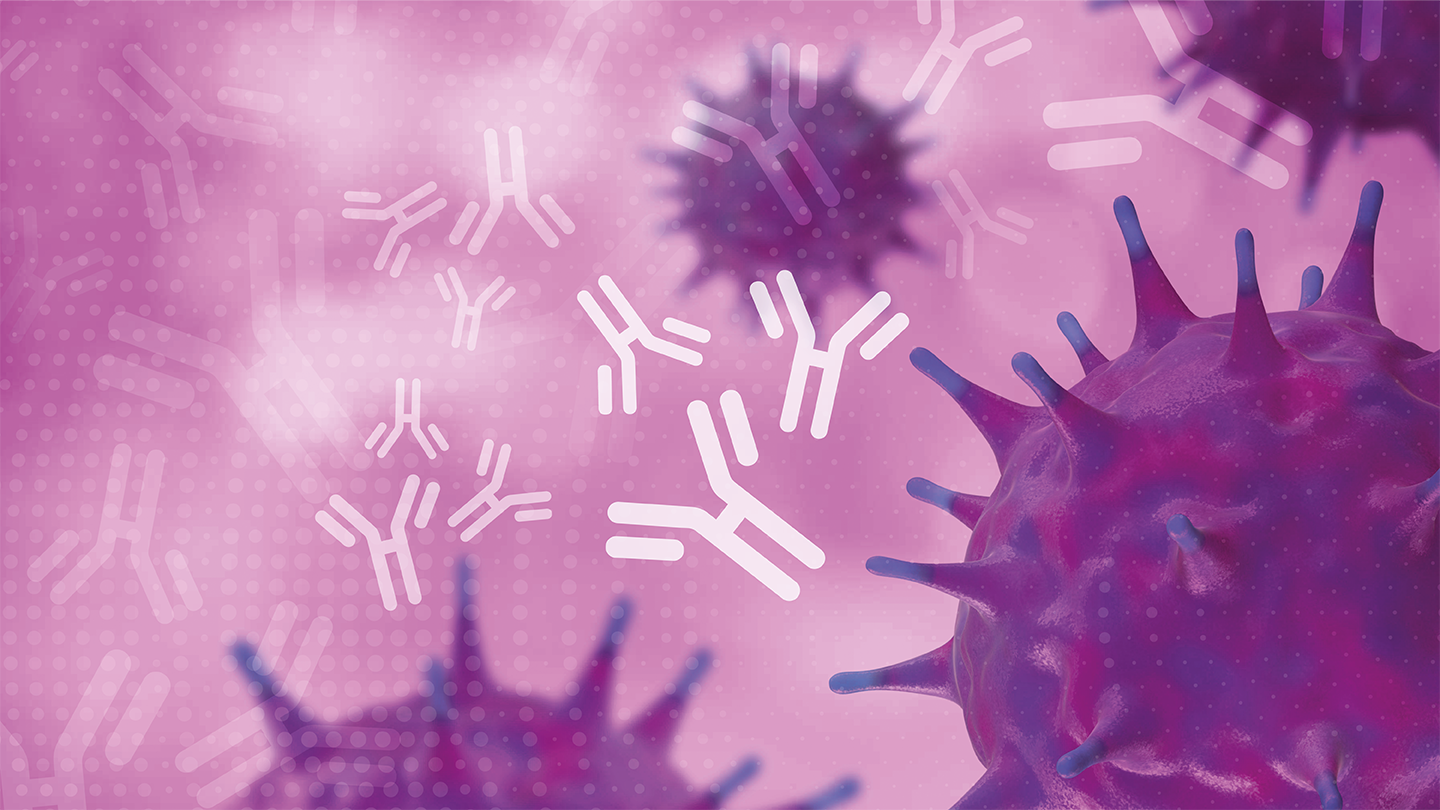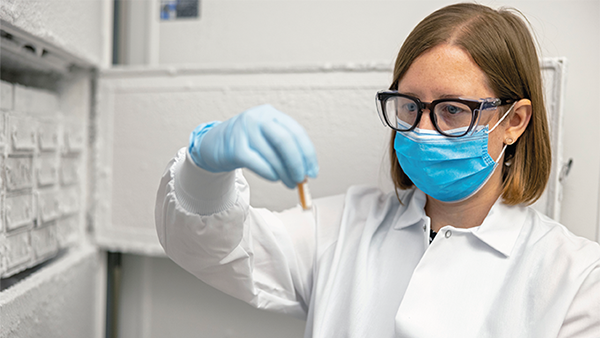T Cell Secrets
T cell modulation in adaptive immune responses is key to anticipating and mitigating future viral threats
The adaptive immune system is a remarkable defense mechanism that enables the human body to recognize and mount targeted responses against specific pathogens. Central to this process are T cells – a type of white blood cell that play a pivotal role in orchestrating immune responses. Understanding and modulating T cell responses is crucial for harnessing the full potential of the adaptive immune system, providing valuable insights for preparing for and combating future viral threats.
T cell fundamentals
T cells are critical components of the adaptive immune system and are responsible for cell-mediated immunity. These cells possess specific receptors known as T cell receptors, which allow them to recognize and bind to antigens presented by infected or abnormal cells. The two primary types of T cells involved in adaptive immune responses are:
- Helper T cells: These cells assist in orchestrating the immune response by releasing signaling molecules called cytokines. Helper T cells play a key role in activating other immune cells, including B cells that produce antibodies, and cytotoxic T cells that directly attack infected cells.
- Cytotoxic T cells: Cytotoxic T cells are responsible for identifying and destroying cells infected with viruses or other intracellular pathogens. They recognize specific viral antigens presented on the surface of infected cells and initiate their destruction – limiting the spread of the virus.
Modulation for future viral threats
T cell testing has been of interest to multiple companies and researchers because of its potential to provide a more accurate picture of immunity, given that T cell immune response often lasts longer than antibodies. T cell testing can help us respond to future viral threats, in areas such as:
- Vaccine development and improvement: T cell modulation research has the potential to revolutionize vaccine development. Current vaccines primarily focus on eliciting antibody responses, which are essential for extracellular pathogens; however, a strong T cell response is equally vital, especially for intracellular pathogens like viruses. Understanding how to boost T cell responses through vaccine design can lead to more effective and long-lasting immunity against viral threats.
- Broad-spectrum antiviral therapies: T cell modulation can inform the development of broad-spectrum antiviral therapies. By targeting conserved regions of viral antigens recognized by T cells, researchers can create therapies effective against multiple viral strains within a viral family, reducing the risk of emerging viral outbreaks.
Immune memory and preparedness: Studying T cell memory responses is crucial for preparing for future viral threats. T cells can retain memory of previously encountered pathogens, enabling a faster, more robust response upon re-infection. Understanding the factors that influence T cell memory formation can help us design strategies for long-term immune preparedness against known and emerging viruses. - Predicting disease severity: T cell responses have been linked to disease outcomes in viral infections. Modulating T cell responses could help mitigate severe disease outcomes by promoting a balanced and controlled immune reaction that prevents excessive inflammation and tissue damage.
- Therapeutic interventions for immune disorders: T cell modulation holds promise in managing immune-related disorders, such as autoimmune diseases and immunodeficiencies. Precise targeting of T cell responses can help restore immune balance in these conditions.
- Monitoring vaccine efficacy and immune response: Assessing T cell responses in vaccinated individuals can provide valuable data on vaccine efficacy and the likelihood of breakthrough infections. Monitoring T cell activity can guide the development of booster shots and tailored vaccination strategies to maintain protection against evolving viral variants.
Overall, T cell modulation in adaptive immune responses represents a frontier of research with the potential to shape the future of viral threat preparedness and management. By understanding and harnessing the power of T cells, scientists and healthcare professionals can develop more effective vaccines, antiviral therapies, and strategies to combat emerging viral threats. Advances in T cell research and immunomodulatory techniques will be pivotal in fostering a world better equipped to respond to and control viral outbreaks – ultimately safeguarding global health.
Sources
JW Yewdell, SM Haeryfar, “Understanding presentation of viral antigens to CD8+ T cells in vivo: the key to rational vaccine design,” Annu Rev Immunol, 23, 651 (2005). PMID: 15771583.
EJ Wherry, M Kurachi, “Molecular and cellular insights into T cell exhaustion. Nature Reviews Immunology,” Nat Rev Immunol, 15, 486 (2015). PMID: 26205583.
A Sette, S Crotty, “Adaptive immunity to SARS-CoV-2 and COVID-19,” Cell, 184, 861 (2021). PMID: 33497610.
A Grifoni et al., “Targets of T cell responses to SARS-CoV-2 coronavirus in humans with COVID-19 disease and unexposed individuals,” Cell, 181, 1489 (2020). PMID: 32473127.






